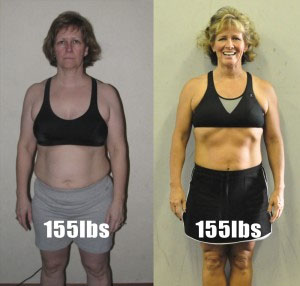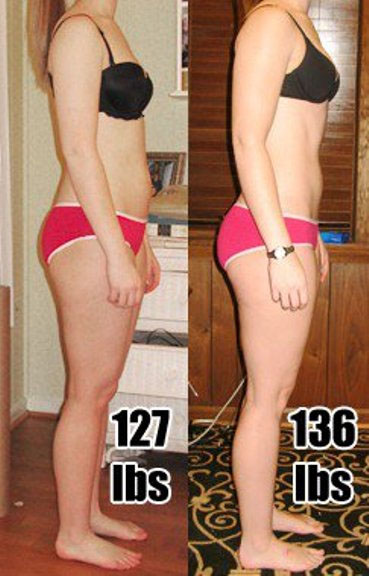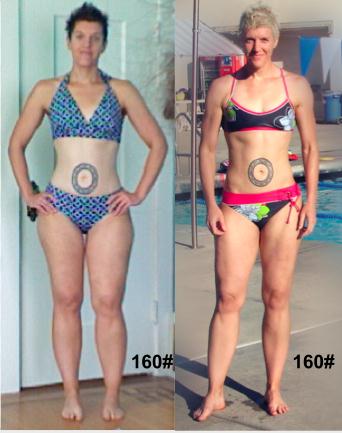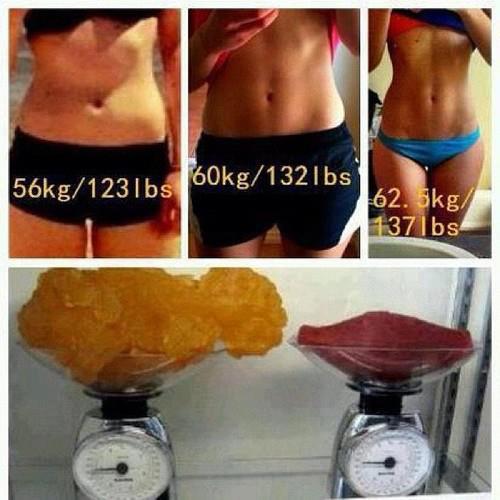Who figures this BMI crap anyway?
Replies
-
BMI is fine. Why the complaint? Are you saying you have grown in height since you were 17?
It's really not.
It doesn't take into account body composition. A lot of athletes are considered obese according to BMI because they've got so much muscle. It doesn't even work well on the average person because there's no such thing as the average person.
Please use a bit of common sense and then BMI is fine. It is clearly not a one size fits all model. If you are a matchstick with a BMI of say 26, then common sense would say dont lose anymore. Similarly if you are very well built with lots of muscle.
I have a BMI of around 23.5. If I tried to lose another 2-3kg to hit my ideal BMI, I would look too thin for my liking.
However, various people of average build - no point being picky about this; it is quite reasonable to assume what is an average build (someone who doesnt work out 6 times a week, perhaps) - think they arent overweight when they actually are. Besides what is wrong with a tool that reasonably encourages people to lose weight. Is there really an epidemic of vast people being treated for eating disorders because of what BMI has got them into?
No, but there are a lot of people being rejecting for eating disorder treatment because their BMI is 'too high' to be considered sickly thin. Although, at a BMI of 20, some people ARE sickly thin.0 -
Calling BS on BMI should not be used as a valid rational to be overweight. If you fall above normal BMI, then get your BF% checked. If you have healthy BF% while being above a normal BMI, then applaud yourself for being a fine specimen. You will find this is more the exception than the rule.0
-
Bodyfat% is much more important than BMI.0
-
It's absolutely incorrect to assume that BMI applies to over 99% of the population. BMI more appropriately represents a Bell Curve in it's application to people as a whole. It might be accurate for the small majority of people only.It's really not.
It doesn't take into account body composition. A lot of athletes are considered obese according to BMI because they've got so much muscle. It doesn't even work well on the average person because there's no such thing as the average person.
For the sub 1% of the population this applies to, sure. Most everyone else fits in the numbers fine. But muh thin privilege!!
BMI alone simply is NOT a good predictor of overall health / fitness levels. Especially not fitness levels.
images taken from this page ... http://paleozonenutrition.com/2012/04/25/what-does-your-body-look-like-on-the-inside-more-reasons-to-lift-weights/
Same person, same BMI - after some diet/training:
Same person, higher BMI - again after diet/training:
Again, same person - same BMI but a massive difference in body composition:
Same person, higher in BMI, and a comparison between fat/muscle of the same weight: 0
0 -
People say this a lot, but it really isn't true. Most professional athletes are actually in a healthy BMI range. Are their outliers? Yes. Are they the norm? No, they are exceptions. For every Shaq (who lets face it, was fat, and obese on BMI) there's a Magic Johnson (BMI of 23.) Some NFL players have higher BMIs but most basketball and baseball players are right in the BMI ranges. The average Major League Baseball player is 6'2 and 190 pounds, which is a BMI of 24.BMI is fine. Why the complaint? Are you saying you have grown in height since you were 17?
It's really not.
It doesn't take into account body composition. A lot of athletes are considered obese according to BMI because they've got so much muscle. It doesn't even work well on the average person because there's no such thing as the average person.
Sure there will always be outliers where the BMI doesn't apply (just like with every kind of population metric,) but those are exceptions, and don't really invalidate the entire concept.0 -
The hardest part about BMI is getting the pronunciation correct.0
-
I'm the same height as you and my lean weight range is 150-160 lbs, on a medium bordering on small frame.
Which is about 100 lbs less than when I was 17.
What's your complaint again?
Well .. my point was I would think that at 175, I would be pretty skinny. So in essence, as I would assume most people don’t want to lose muscle, I would have to lose 30 pounds of fat..and fat only. I just find it hard to believe that would be realistic . But who knows. It was just a rant.0 -
They are big into health here at my work..saves on insurance premiums and all. Hence the 18-25 B.M.I. thing. Thanks for all the responses.0
-
BMI - IMO - is a garbage stat as it does not adequately account for muscle mass..
My BMI is "obese" but i am 12% body fat …go figure….
your doctors frequently tell you to lose weight, because your BMI is pointing to obesity ???
Most medical professionals do apply some common sense with these sort of things and like it or not, if they have an obese individual sitting in front of them, pointing to the persons BMI to illustrate their weight problem is a reasonable thing to do, because 'feeling great' at 400lbs doesn't mean anything in terms of long term health.0 -
It's absolutely incorrect to assume that BMI applies to over 99% of the population. BMI more appropriately represents a Bell Curve in it's application to people as a whole. It might be accurate for the small majority of people only.It's really not.
It doesn't take into account body composition. A lot of athletes are considered obese according to BMI because they've got so much muscle. It doesn't even work well on the average person because there's no such thing as the average person.
For the sub 1% of the population this applies to, sure. Most everyone else fits in the numbers fine. But muh thin privilege!!
BMI alone simply is NOT a good predictor of overall health / fitness levels. Especially not fitness levels.
images taken from this page ... http://paleozonenutrition.com/2012/04/25/what-does-your-body-look-like-on-the-inside-more-reasons-to-lift-weights/
Same person, higher in BMI, and a comparison between fat/muscle of the same weight:
Ok, yeah I have seen people make some pretty impressive transformations from lifting, but I have to call foul on the last girl's body. The first 2 pics look like the same person, but that third pic is either a different person, or the pic has been "stretched", because that pic has a definite longer waist than the first 2. Losing weight and lifting canNOT make your waist longer.0 -
BMI is fine. Why the complaint? Are you saying you have grown in height since you were 17?
It's really not.
It doesn't take into account body composition. A lot of athletes are considered obese according to BMI because they've got so much muscle. It doesn't even work well on the average person because there's no such thing as the average person.
Please use a bit of common sense and then BMI is fine. It is clearly not a one size fits all model. If you are a matchstick with a BMI of say 26, then common sense would say dont lose anymore. Similarly if you are very well built with lots of muscle.
I have a BMI of around 23.5. If I tried to lose another 2-3kg to hit my ideal BMI, I would look too thin for my liking.
However, various people of average build - no point being picky about this; it is quite reasonable to assume what is an average build (someone who doesnt work out 6 times a week, perhaps) - think they arent overweight when they actually are. Besides what is wrong with a tool that reasonably encourages people to lose weight. Is there really an epidemic of vast people being treated for eating disorders because of what BMI has got them into?
There is no such thing as an average person. There are so many factors that go into your body composition. Genetic traits, race, gender, level of exercise, type of exercise you do, what kind of work you do. None of this is taken into account with BMI.
You've even demonstrated yourself. To be the right BMI, that would be too thin for you.
I am at the right BMI - between 19 and 24.9, although my ideal weight is another 2kg off, so actually, BMI is fine, as I have said all along.
In regards to an average person, use a bit of common sense. Every single model designed as a generic guideline will never be a one size fits all. If you refuse to apply common sense, then most models in the world will not work.0 -
BMI is fine. Why the complaint? Are you saying you have grown in height since you were 17?
It's really not.
It doesn't take into account body composition. A lot of athletes are considered obese according to BMI because they've got so much muscle. It doesn't even work well on the average person because there's no such thing as the average person.
Please use a bit of common sense and then BMI is fine. It is clearly not a one size fits all model. If you are a matchstick with a BMI of say 26, then common sense would say dont lose anymore. Similarly if you are very well built with lots of muscle.
I have a BMI of around 23.5. If I tried to lose another 2-3kg to hit my ideal BMI, I would look too thin for my liking.
However, various people of average build - no point being picky about this; it is quite reasonable to assume what is an average build (someone who doesnt work out 6 times a week, perhaps) - think they arent overweight when they actually are. Besides what is wrong with a tool that reasonably encourages people to lose weight. Is there really an epidemic of vast people being treated for eating disorders because of what BMI has got them into?
No, but there are a lot of people being rejecting for eating disorder treatment because their BMI is 'too high' to be considered sickly thin. Although, at a BMI of 20, some people ARE sickly thin.
Well that is the fault of the institution, not BMI. More politics than health related.0 -
bmi puts me in the overweight category(borderline healthy/over weight)...I wear a size 5/6..yah I am not overweight.
I am 5 ft 7 and weight 159-160...0 -
bmi puts me in the overweight category(borderline healthy/over weight)...I wear a size 5/6..yah I am not overweight.
I am 5 ft 7 and weight 159-160...
I am 5'6" and the top of healthy BMI for me is 155, so you at 160 is within the 'Healthy' range. This is why they give a 30 lb range in the category. Some people will fall in the lower end of the range at their ideal weight.
What I see more on here is women at your height, weighing 200 lbs, but claiming that they are 'big boned' and 'Muscular', and therefore BMI chart shouldn't apply to them. Or the 6' tall, 280 lb guy claiming the same thing.
Being slightly over the healthy range may be fine for many people, but I can't see being 60+ lbs overweight and claiming that it is 'all muscle'.0 -
BMI sucks.
It doesn't take into account muscle mass and that right there can make a huge difference. There are people out there who, according to their BMI could be considered obese, when, in fact, they are bodybuilders-as an example. BMI is a good start, but you should also consider finding out your body fat percentage. This could be as simple as taking measurements with a tape measure and using an online calculator to get a pretty good estimate. It could be more complex, like seeking out a professional to get more accurate measurements. You can also get calipers and measure your fat rolls, hehe. I've never used them, but I hear they are more accurate than the tape measure method.
Between monitoring your BMI, your body fat percentage, and even things like how you FEEL and how healthy your body is overall (maybe through labs and what not)...all of that will help you decide what a good weight is for YOU.
And clearly these first two posters after you woke up on the RUDE side of the bed. Because really, its not secret that BMI is a d-bag.
For the majority of the world's population, BMI is a relative indicator of obesity. It's telling that your example to discredit BMI (bolded above) is such a tiny percentage of the population. Yes, for that tiny subset BMI is skewed ... but perhaps you've noticed that there is not a bodybuilding epidemic in America while obesity is quite common.
I'm trying to overlook the fact you referred to a mathematical relationship as "a d-bag" and chalk it up as a youthful indiscretion on your part.
http://www.hsph.harvard.edu/obesity-prevention-source/obesity-definition/obesity-definition-full-story/
Not just body bulders but sports players or ex-players. My cousin was a football player in high school but now, at 26, he still works out the same way with a BMI of 29-30.0 -
It's more important to be in "good health" than to be concerned with the BMI IMO. I'm 215 and get my blood pressure taken every month and only after loosing 10 pounds I have the same blood pressure as some one in the "healthy" range for BMI. I don't have diabetes or any other health problems like this (I do have asthma though and my brother does too but he's 185 and 6'4). I can run just like any other person (ran from class to my dorm to get a book yesterday (a 20 minute walk I ran in 10). Walk 4 miles 3 times a week. Work 5 days a week as prep cook, busser, and gofer. During middle and high school (around the same height but 20-30 lbs less still very high BMI) I was in marching band playing trombone and tuba, did field events (shot and discus) and soccer (starting midfielder).
I believe I can stand to loss a few pounds but I'm not watching my BMI.0 -
BMI is fine. Why the complaint? Are you saying you have grown in height since you were 17?
It's really not.
It doesn't take into account body composition. A lot of athletes are considered obese according to BMI because they've got so much muscle. It doesn't even work well on the average person because there's no such thing as the average person.
A lot of athletes are overweight. BMI is fine, what is wrong is an insurance agency making it a hard rule for "health".0 -
BMI - IMO - is a garbage stat as it does not adequately account for muscle mass..
My BMI is "obese" but i am 12% body fat …go figure….
Your BMI is 25.5, just barely over normal. You'd have to be 30 lbs heavier to qualify as "obese".0 -
It's more important to be in "good health" than to be concerned with the BMI IMO. I'm 215 and get my blood pressure taken every month and only after loosing 10 pounds I have the same blood pressure as some one in the "healthy" range for BMI. I don't have diabetes or any other health problems like this (I do have asthma though and my brother does too but he's 185 and 6'4). I can run just like any other person (ran from class to my dorm to get a book yesterday (a 20 minute walk I ran in 10). Walk 4 miles 3 times a week. Work 5 days a week as prep cook, busser, and gofer. During middle and high school (around the same height but 20-30 lbs less still very high BMI) I was in marching band playing trombone and tuba, did field events (shot and discus) and soccer (starting midfielder).
I believe I can stand to loss a few pounds but I'm not watching my BMI.
Hi, just some friendly advice from someone with 30 years of experience on you-
You are only 19, were overweight in MS and HS, and have already gained quite a bit since HS. Looking at your pictures, you carry your weight in your midsection. This is very bad for us because we are at a higher risk for Diabetes and Heart disease.
You may have healthy numbers now, but in a few years that won't be the case. By the time you start having health issues, you may be 100 pounds or more overweight, have damaged your joints from carrying the extra weight, and have metabolic disorders which will make it even harder to lose weight. At that point in time you will be suddenly drowning and the fight back to health will be extremely hard.
Please learn from us who have gone before you and pay attention to numbers like your BMI. Yes, some people will be perfectly fine slightly above the Healthy range, but if you are 30 pounds over the top of the healthy range, you are now in the obese range, and you should take that seriously, and take care of it NOW. Trying to lose at 50 is extremely tough!
Looks like you are already losing some weight, so that is great. Just keep up the forward progress, and you will be amazed at how much better you feel and can perform with another 40-50 lbs off. Your future self will thank you! :flowerforyou:0
This discussion has been closed.
Categories
- All Categories
- 1.4M Health, Wellness and Goals
- 398.1K Introduce Yourself
- 44.7K Getting Started
- 261K Health and Weight Loss
- 176.4K Food and Nutrition
- 47.7K Recipes
- 233K Fitness and Exercise
- 462 Sleep, Mindfulness and Overall Wellness
- 6.5K Goal: Maintaining Weight
- 8.7K Goal: Gaining Weight and Body Building
- 153.5K Motivation and Support
- 8.4K Challenges
- 1.4K Debate Club
- 96.5K Chit-Chat
- 2.6K Fun and Games
- 4.8K MyFitnessPal Information
- 12 News and Announcements
- 21 MyFitnessPal Academy
- 1.5K Feature Suggestions and Ideas
- 3.2K MyFitnessPal Tech Support Questions












